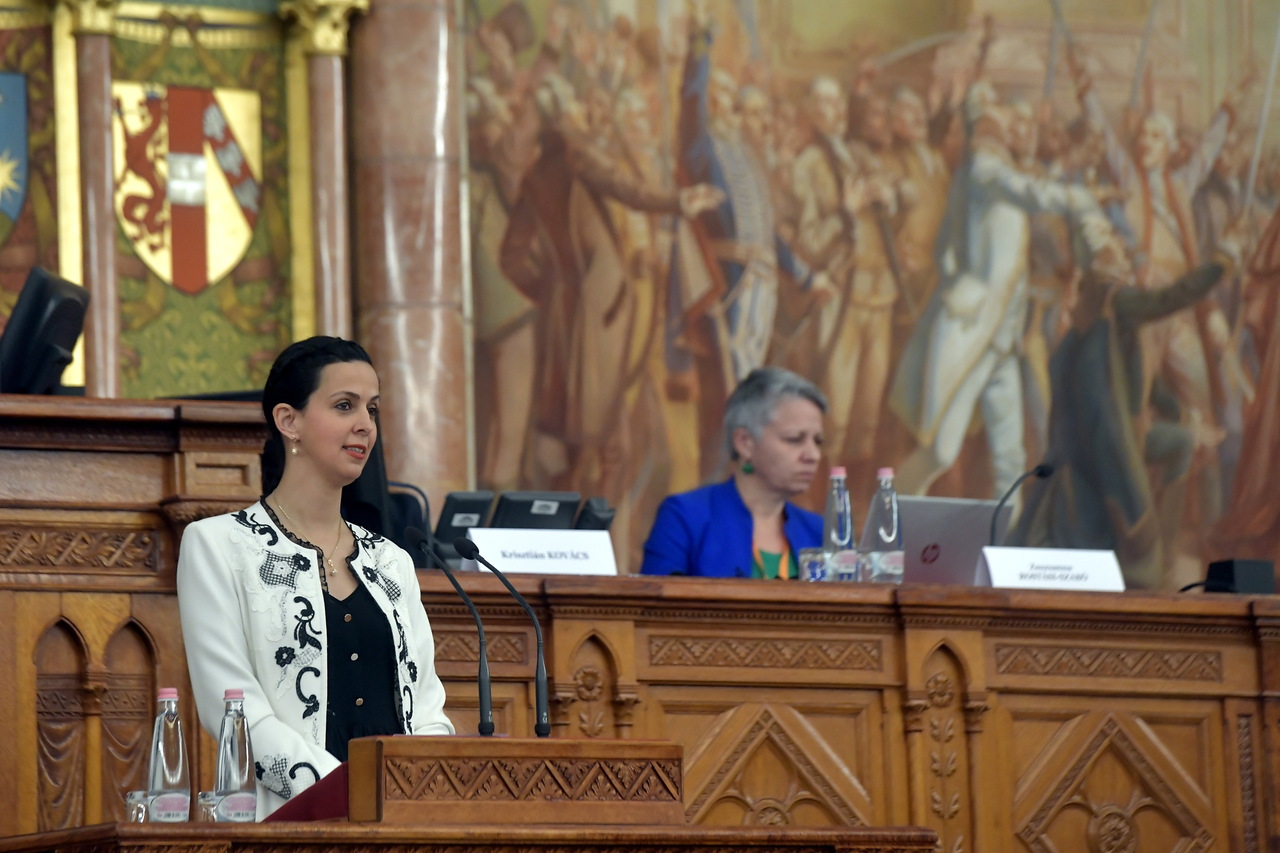Hungary’s pro-family policies yield positive demographic results, highlighted at COSAC conference
The government’s pro-family policies have achieved real results, with a turnaround visible in most indices, a government official told the Conference of Parliamentary Committees for Union Affairs (COSAC) in Budapest on Tuesday.
In a session on European demographic processes, Zsófia Koncz, the state secretary for families, said the government’s pro-family policy had contributed to an additional 178,000 children born in Hungary since 2010.

Hungary’s birth rate was ranked last among EU member states prior to the current government’s efforts, and it has since advanced to sixth place, she said.
During its EU presidency, Hungary wants to draw attention to the demographic challenges and the importance of family policy. “The EU can be strong and successful only if it is made up of strong families,” she added.
Péter Sztáray, a foreign ministry state secretary, said the EU should spend more on defence, adding that the community should also reinforce its crisis management capabilities.
He said NATO was “the ultimate guarantee” for Europe’s defence. Collective defence is a “primary consideration”, he said, adding that “it is not good if NATO members give up all their reserves to a third country; Ukraine in this case”. Doing so would weaken their own defence and “indirectly, protection for the whole of NATO” unless they have sufficient production capacities.
Concerning the war in Ukraine, he said “everybody agrees that Russia has committed an act of aggression against Ukraine, and so Hungary recognises Ukraine’s sovereignty and territorial integrity. The concepts for a resolution, however, are different.”
“It has become clear that there is no military solution to the conflict,” he said, and reiterated Hungary’s position that “the sides should be convinced that they must sit down and start talks”. Unless they do so “a whole generation will disappear in the war,” he added.
Read also:






Fertility rate. So we are aiming at 2.1, people! The usual challenge – find Hungary:
https://www.statista.com/statistics/612074/fertility-rates-in-european-countries/
Wow. Ain´t facts and data a total b/tch. Costing us twice (2x) as much as our current defense spending. Even if we keep this up… It will not be enough:
https://www.macrotrends.net/global-metrics/countries/HUN/hungary/fertility-rate
Speaking of which. Defense against who or what? Mr. Putin´s Peace Loving Russia, apparently! He does need to be appeased, though. Historic formula for success! And regarding “whole generations” disappearing in the war. Our Politicians are transactional. What do they care? And foreigners, right?
The issue with the birth stats is twofold: it’s arguably too early to draw any realistic conclusions and the trends are now negative (with births having reached the lowest rate since 1990). Births did increase significantly seemingly as a direct consequence of government support, but the period of success covers a period of strong growth, low housing costs and a general sense of optimism that Hungary’s time in the sun had finally arrived. All the funding may have done is bring forward couples having children, keen to avail themselves of the financial support available before the funds run out but it’s a moot point whether the financial support or genuinely rising living standards and optimism towards the future was the more influential factor in this decision. Only if trends return in a positive direction despite the the economic malaise could one conclude in a decade from now that the lavish funding was merited. The signs are not however good.
Seeking to raise the birth rate is perfectly commendable but one needs to look at the holistic view, otherwise you’re hosing money into a leaky bucket and just giving money to people that would in the main have children anyway. Excessive housing costs and the state of public healthcare and education arguably serve as a greater disincentive to have children than anything monetary encouragement can overcome. Then there are the more nebulous aspects, the febrile atmosphere caused by an embittered and divided population, the malaise, the seeming lack of any positive news on the horizon, the decision to have children is taken in this context and quite frankly, I think most people just want to have a stiff drink to calm their nerves rather than plan a family.